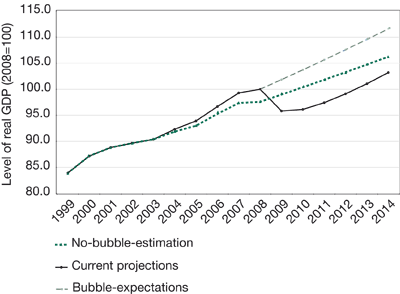
Navigating Economic Crisis: Impact and Strategies
Economic crises can significantly impact individuals, businesses, and entire nations. Understanding the effects and implementing effective strategies is crucial in navigating through these challenging times. In this article, we explore the various dimensions of economic crisis effects and provide insights into strategies for resilience and recovery.
The Ripple Effects on Individuals
Economic crises often manifest in job losses, reduced income, and increased financial uncertainty for individuals. The stress on household finances can lead to challenges in meeting basic needs, impacting overall well-being. As unemployment rates rise and inflation sets in, individuals face tough decisions regarding budgeting, debt management, and long-term financial planning.
Business Downturns and Closures
Businesses bear the brunt of economic crises, facing reduced consumer spending, disrupted supply chains, and financial instability. Small businesses, in particular, may struggle to survive, leading to closures and job losses. The ripple effect on the broader economy can be profound, with industries such as hospitality, travel, and retail experiencing severe downturns.
Impact on Investments and Financial Markets
Investors often face significant losses during economic crises as financial markets experience volatility and downturns. Stock market fluctuations, devaluation of assets, and changes in interest rates can erode wealth and impact investment portfolios. Diversification, risk management, and a cautious approach become critical for investors weathering economic storms.
Government Responses and Fiscal Policies
Governments play a pivotal role in mitigating the effects of economic crises through fiscal policies and interventions. Stimulus packages, monetary easing, and targeted support for affected industries aim to stabilize the economy. However, the effectiveness of these measures depends on their timeliness, scope, and alignment with the specific challenges faced by the economy.
Global Trade and Supply Chain Disruptions
Economic crises often lead to disruptions in global trade and supply chains. The interconnected nature of the global economy means that a crisis in one region can have far-reaching consequences. Supply chain disruptions impact the availability of goods, increase production costs, and contribute to a slowdown in international trade.
Strategies for Individual Financial Resilience
In times of economic crisis, individuals can adopt strategies to enhance their financial resilience. This includes building emergency funds, reducing non-essential expenses, exploring additional income streams, and reviewing investment portfolios. Seeking professional financial advice can be valuable in navigating uncertain economic landscapes.
Adapting Business Strategies for Survival
Businesses need to adapt their strategies to survive economic downturns. This may involve diversifying products or services, exploring new markets, and enhancing operational efficiency. Effective communication with stakeholders, including employees and customers, is crucial in maintaining trust and loyalty during challenging times.
Investment Strategies for Volatile Markets
Investors facing volatile markets during economic crises should consider adjusting their investment strategies. This may involve rebalancing portfolios, exploring defensive investments, and staying informed about market trends. Long-term investors often find opportunities in undervalued assets, but a cautious and informed approach is essential.
Resilience Through Innovation and Technology
Innovation and technology adoption can be key factors in building resilience during economic crises. Businesses that invest in digital transformation, online sales channels, and remote work capabilities may find themselves better positioned to adapt to changing circumstances. Embracing innovation can lead to new opportunities and operational efficiencies.
Building a Sustainable and Inclusive Recovery
As economies recover from crises, there is an opportunity to build a more sustainable and inclusive future. Governments, businesses, and individuals can prioritize environmentally friendly practices, social responsibility, and inclusive economic policies. This collective effort can contribute to a resilient and equitable recovery.
To navigate the effects of economic crises and explore strategies for resilience and recovery, visit Economic Crisis Effects. Gain valuable insights and resources to navigate challenging economic landscapes and build a more robust financial future.










